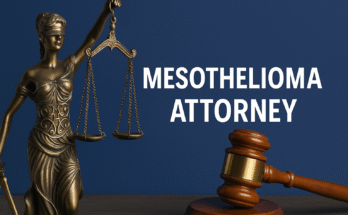Expert Motorcycle Accident Lawyer Tips for Injured Riders in the US
Being involved in a motorcycle accident in the United States is a terrifying and often life-altering event. Unlike occupants of cars, motorcyclists have virtually no physical protection, making them exceptionally vulnerable to severe injuries. Beyond the immediate physical trauma, victims often face an overwhelming cascade of mounting medical bills, lost income, and the daunting challenge of navigating complex legal and insurance systems. This is precisely where the strategic guidance of an experienced motorcycle accident lawyer becomes not just beneficial, but absolutely essential for injured riders in the US.
The landscape of motorcycle accidents in the US is uniquely challenging. There’s a persistent, and often unfair, societal bias against motorcyclists. This can lead insurance adjusters, and even some jurors, to automatically assume the rider was at fault, regardless of the actual circumstances. This pervasive preconception, coupled with the often catastrophic nature of motorcycle injuries, makes securing fair and adequate compensation a highly complex and uphill battle. Common injuries sustained by motorcyclists include:
- Road Rash: Severe skin abrasions caused by friction with the road surface, leading to deep tissue damage, infection risk, permanent scarring, and nerve damage. These often require extensive medical treatment, including skin grafts.
- Fractures and Broken Bones: High-impact collisions frequently result in multiple, often comminuted, fractures in limbs, ribs, and the pelvis. These typically necessitate extensive surgeries, internal fixation (plates, screws), and prolonged rehabilitation.
- Traumatic Brain Injuries (TBIs): Even with a DOT-compliant helmet, the sheer force of impact can cause concussions, contusions, or more severe diffuse axonal injury. TBIs can lead to devastating long-term cognitive impairments (memory loss, difficulty concentrating), emotional changes (irritability, depression), and physical deficits.
- Spinal Cord Injuries: Direct impacts to the back or neck can result in devastating spinal cord damage, ranging from nerve compression to complete severance, potentially leading to partial or complete paralysis. These injuries often require lifelong care and can profoundly impact quality of life.
- Internal Injuries: Blunt force trauma from an accident can cause internal bleeding, organ damage (spleen, liver, kidneys, lungs), and other life-threatening conditions that may not be immediately apparent at the scene.
- “Biker’s Arm” and Nerve Damage: Injuries to the brachial plexus, a network of nerves that control movement and sensation in the arm and hand. This often occurs when a rider extends their arm to brace for impact, leading to chronic pain, numbness, weakness, or complete loss of function in the affected limb.
- Psychological Trauma: Beyond the visible physical wounds, many accident survivors grapple with profound psychological trauma, including post-traumatic stress disorder (PTSD), severe anxiety, depression, and a debilitating fear of riding again. These invisible injuries can be as debilitating as physical ones and require professional mental health support.
Given the potential severity of these injuries and their profound, long-term impact on a victim’s life, securing adequate and comprehensive compensation is not just beneficial, but crucial for a victim’s recovery, future medical needs, and overall well-being. Here are essential tips from an expert US motorcycle accident lawyer to guide injured riders:
1. Prioritize Immediate Safety and Comprehensive Medical Care
Your health and well-being are paramount. Your first actions after a crash are critical.
- At the Scene: If you are conscious and able, immediately assess yourself and any others involved for injuries. If anyone is seriously hurt, unconscious, or bleeding profusely, call 911 (emergency services) without delay. Do not attempt to move anyone with suspected head, neck, or spinal injuries unless they are in immediate danger (e.g., from fire or impending collision).
- Seek Medical Examination Immediately: Even if you feel fine or your injuries seem minor, get a full medical evaluation as soon as possible after the crash. The adrenaline rush from an accident can mask pain, and some severe injuries (like internal bleeding, concussions, or soft tissue damage) may not present noticeable symptoms for hours or even days. A prompt and thorough medical record, directly linking your injuries to the accident, is irrefutable evidence. Ensure you follow all doctor’s orders, attend every follow-up appointment, and keep meticulous records of all medical bills, prescriptions, rehabilitation therapy sessions, and any related expenses. This documentation is vital for your claim.
2. Secure the Scene and Meticulously Gather Evidence
What you do at the accident site can significantly impact the strength and success of your legal claim.
- Move to Safety (If Feasible and Safe): If your motorcycle can be moved safely and you are not severely injured, move it and yourself to the side of the road to prevent further accidents. However, if there are serious injuries, or if moving the bike would compromise crucial accident scene evidence, leave it in place until law enforcement arrives.
- Call the Police: Always report the accident to law enforcement. An official police report, often called a crash report or accident report, provides an objective, third-party account of the accident, identifies all involved parties, and may assign fault or note contributing factors. Cooperate fully with the investigating officers, but under no circumstances should you admit fault, apologize, or speculate about the cause of the accident. Stick strictly to factual observations.
- Gather Information from All Parties:
- Other Drivers: Obtain the name, contact number, vehicle make, model, license plate number, and driver’s license number of all other drivers involved. Crucially, collect their insurance information (company name and policy number).
- Witnesses: Ask anyone who witnessed the accident for their name and contact information (phone number, email address). Independent witness testimonies can be invaluable, especially if there are conflicting accounts or if the other party attempts to deny responsibility.
- Photographs and Videos: Use your smartphone to take extensive photos and videos of the accident scene from multiple angles. Capture images of damage to all vehicles (yours and others’), skid marks, debris on the road, road conditions (potholes, cracks), traffic signals or signs, weather conditions, and any visible injuries you or others sustained. Also, photograph the surrounding area. The more visual evidence, the stronger your case.
- Do NOT Admit Fault: This is a paramount rule. Any statement you make, even an innocent “I’m sorry,” can be misconstrued and used against you by insurance companies to deny or minimize your compensation.
3. Understand Your Rights and Insurance Realities
Motorcycle insurance laws and requirements vary by state, and understanding your coverage and the other driver’s is critical for your claim.
- Notify Your Insurer: Report the accident to your own motorcycle insurance provider as soon as reasonably possible, adhering to the timeline specified in your policy (usually within 24-48 hours). Be concise with the facts and avoid speculation.
- Beware of Other Drivers’ Insurers: The at-fault driver’s insurance company will almost certainly contact you quickly. Their primary objective is to settle your claim for the lowest possible amount. Do NOT give a recorded statement, sign any documents (especially medical releases or settlement offers), or discuss the accident in detail with them without first consulting your attorney. You are not legally obligated to speak with them without legal representation.
- Underinsured/Uninsured Motorist (UM/UIM) Coverage: A significant number of motorcycle accidents in the US involve drivers who are uninsured or underinsured (meaning their liability limits are too low to cover your damages). Having UM/UIM coverage on your own motorcycle policy is a crucial form of protection that can cover your medical bills, lost wages, and other damages in such unfortunate scenarios. Your attorney will help you navigate this specific type of claim if applicable.
4. Engage an Expert Motorcycle Accident Attorney Immediately
This is the single most critical strategic move an injured rider can make to protect their interests.
- Timely Intervention: Do not delay in contacting an attorney. The sooner they are involved, the better they can preserve perishable evidence (e.g., security camera footage that might be overwritten, witness memories that fade quickly), conduct thorough investigations, and ensure all legal deadlines (statutes of limitations) are strictly met. These deadlines vary by state and are typically very strict, often ranging from one to four years from the date of the accident. Missing this deadline can permanently bar your right to compensation.
- Specialized Knowledge and Bias Mitigation: A lawyer specializing in motorcycle accident claims understands the unique legal challenges and pervasive biases faced by riders. They know how to effectively counter negative stereotypes and present you as a responsible victim, focusing on the facts of the accident, not preconceived notions.
- Comprehensive Evidence Collection & Preservation: Your attorney will take the lead in obtaining the official police report, all necessary medical records, surveillance footage (if available), vehicle damage reports, and securing expert witness testimonies (e.g., accident reconstructionists to prove fault, medical experts to detail the extent of your injuries and future needs, vocational experts to assess lost earning capacity).
- Strategic Negotiation & Robust Representation: Your lawyer will handle all communications with insurance companies, aggressively negotiate on your behalf for a fair settlement that reflects the full extent of your damages, and prepare to take your case to court if a satisfactory agreement cannot be reached. They will fight for comprehensive compensation covering:
- Past and future medical expenses (including surgeries, rehabilitation, ongoing therapy, prescription medications, and long-term care needs).
- Lost wages (current and future earning capacity, accounting for permanent disability).
- Pain and suffering (both physical and emotional).
- Emotional distress and psychological trauma.
- Loss of enjoyment of life (inability to participate in hobbies or daily activities).
- Property damage (for your motorcycle and protective gear).
- Contingency Fee Basis: A significant advantage for victims is that most reputable US personal injury lawyers, particularly those specializing in motorcycle accidents, work on a contingency fee basis. This means you are not required to pay any upfront legal fees or out-of-pocket expenses. The attorney’s payment is a predetermined percentage of the compensation they successfully secure for you. This model ensures that quality legal representation is accessible to every injured rider, regardless of their current financial situation.
Conclusion
A motorcycle accident is a traumatic and often devastating event that can leave you physically, emotionally, and financially vulnerable. However, it does not have to be a journey you face alone. By taking swift action to secure your safety, meticulously gathering evidence at the scene, and, most importantly, swiftly engaging a specialized US motorcycle accident attorney, you empower yourself to navigate the complexities of the legal and insurance systems. Your attorney will serve as your dedicated advocate, protecting your rights, battling against unjust biases, and relentlessly fighting to ensure you receive the full and fair compensation you desperately need and justly deserve, allowing you to focus on your recovery and rebuilding your life after the crash.



